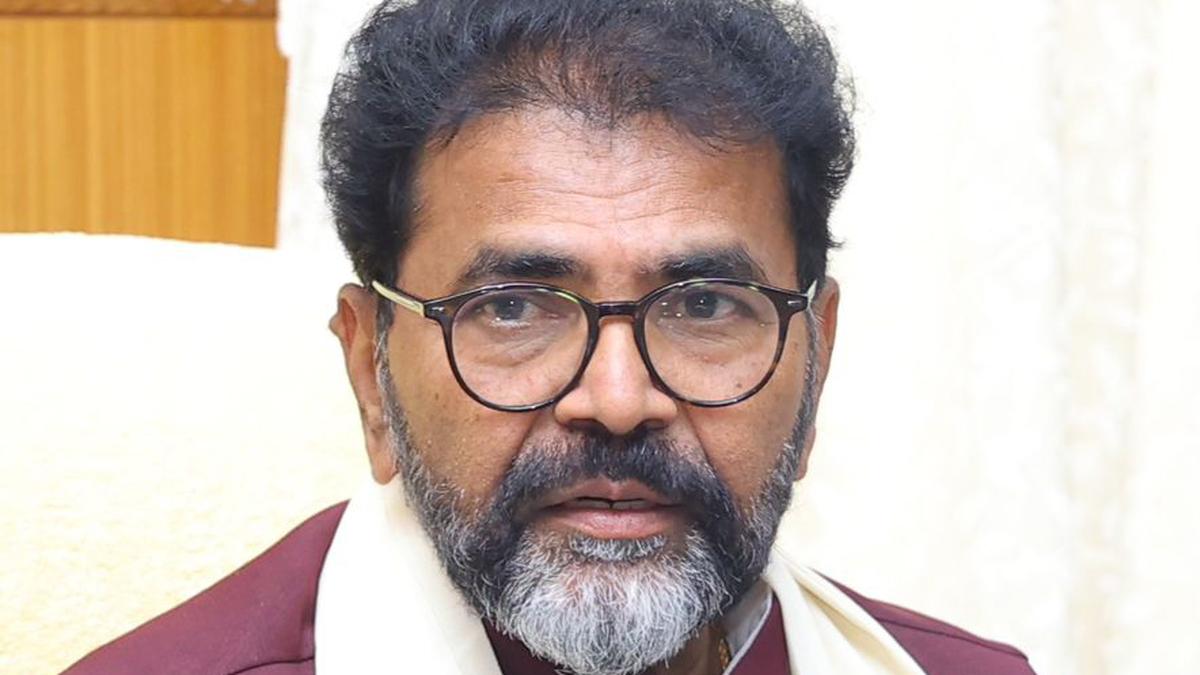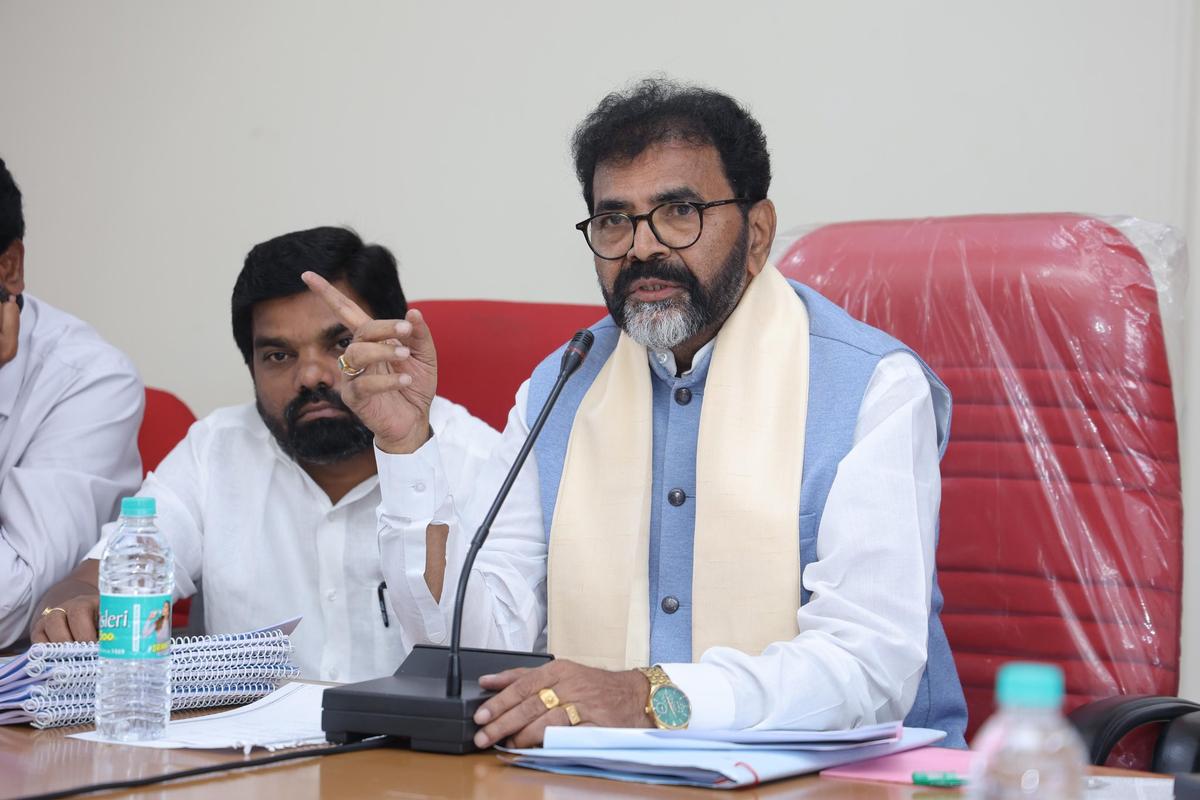Bengaluru witnessed a political storm as Chalavadi Narayanaswamy, prominent Dalit leader and BJP MP, accused the Karnataka government of diverting funds originally allocated for Dalit welfare schemes. Speaking at a press conference, Narayanaswamy alleged that crucial budgetary provisions meant to uplift marginalized communities were being misused for unrelated projects, undermining decades of struggle for equitable opportunities. He asserted that the diversion of funds reflected not only administrative negligence but also a deliberate attempt to sideline Dalit interests. His accusations have sparked heated debates across the state’s political landscape.
Narayanaswamy emphasized that the diversion of welfare funds strikes at the very core of social justice policies. He noted that thousands of Dalit students depend on scholarships, hostels, and skill development programs supported by these allocations. According to him, depriving communities of such critical resources risks perpetuating cycles of poverty and marginalization. He demanded an immediate audit of fund utilization and called for greater transparency in the disbursement of welfare budgets. The BJP leader warned that the government’s credibility would be questioned unless corrective measures were taken swiftly.
The Congress-led state government, however, dismissed the allegations as baseless and politically motivated. Senior ministers insisted that all welfare funds are being utilized responsibly and transparently, claiming that Narayanaswamy’s accusations are an attempt to create unrest ahead of upcoming elections. They argued that fund allocations are routinely monitored and subjected to scrutiny by both the legislature and independent bodies. Nevertheless, the issue has gained momentum, with Dalit organizations expressing concern and demanding clarification. The controversy has quickly snowballed into a larger debate about governance, accountability, and minority rights.

Dalit Welfare at Stake: Chalavadi
Activists pointed out that many Dalit families rely on government schemes for housing, education, and employment support. Any mismanagement of funds directly impacts livelihoods.
Social justice groups have demanded a white paper from the government, detailing the exact expenditure of funds allocated under the Scheduled Castes Sub-Plan (SCSP) and Tribal Sub-Plan (TSP).
Political Fallout Looms
Opposition parties are likely to escalate the issue in the state assembly, pressing for accountability and demanding independent investigation. The controversy could further polarize Karnataka’s political environment.
Narayanaswamy’s allegations have found resonance among Dalit community leaders, who argue that repeated diversions of welfare funds erode trust in the government. They contend that the Scheduled Castes Sub-Plan (SCSP) and Tribal Sub-Plan (TSP) were designed to ensure a fixed percentage of the state budget directly benefits marginalized groups. Any deviation, they argue, amounts to injustice against communities that have historically faced systemic exclusion. Several Dalit leaders have announced plans to organize public demonstrations to pressurize the government into accountability and ensure funds reach intended beneficiaries without delay.
Grassroots organizations working in rural Karnataka have reported instances where scholarships and stipends for Dalit students were delayed, forcing many to drop out of higher education. They argue that such outcomes illustrate the real-world consequences of budgetary diversions. For families already struggling with poverty, even minor delays in welfare support can become insurmountable hurdles. These testimonies are being used by activists to highlight that the issue is not just political rhetoric but an urgent matter affecting thousands of lives across the state.
Narayanaswamy, in his remarks, accused the government of prioritizing populist schemes over structural welfare commitments. He argued that while public spending on infrastructure and festivals may attract attention, sidelining Dalit-focused schemes damages social equality in the long run. He further alleged that these diversions are part of a larger trend where welfare commitments are announced in budgets but remain underfunded or unimplemented. His demand for a legislative review of welfare expenditure has put pressure on lawmakers to take a clear stand on the issue.
The Karnataka government, on its part, has announced that it will release detailed expenditure reports in the coming weeks. Officials claimed that while some reallocation of funds occurs due to administrative requirements, it does not constitute diversion or misuse. Ministers defended the government’s track record in improving education, housing, and skill development opportunities for Dalits. They accused the opposition of deliberately twisting figures to inflame sentiments and destabilize governance. Yet, many observers feel the explanations have not been sufficiently detailed to calm growing public discontent.
Political analysts believe that Narayanaswamy’s accusations could have significant implications for Karnataka’s electoral politics. Dalits form a sizeable voter base, and dissatisfaction with welfare delivery could sway electoral outcomes in tightly contested constituencies. Analysts point out that the BJP is seeking to consolidate Dalit support, while the Congress is determined to retain its traditional base. This controversy, therefore, risks becoming a central talking point in upcoming political campaigns, influencing both rhetoric and policy commitments.
Dalit youth organizations have taken to social media to amplify the issue, using hashtags and campaigns to demand accountability from the government. These digital campaigns have attracted widespread attention, sparking heated online debates about the state’s handling of welfare schemes. Many posts feature personal stories of students and workers affected by delays or denials of assistance. Such narratives, backed by grassroots activism, are likely to increase pressure on political leaders to provide concrete responses rather than general denials.
Civil society groups have also called for independent audits of SCSP and TSP fund utilization, arguing that government explanations lack credibility without third-party verification. They propose that academic institutions or reputed non-governmental organizations could be tasked with monitoring expenditure and publishing annual reports. Such transparency measures, they argue, would restore faith in the system while deterring future misuse. However, critics note that successive governments have resisted external scrutiny, preferring to maintain control over how welfare funds are reported and allocated.
The issue has also revived old debates about whether welfare schemes for marginalized communities are being treated as vote-bank tools rather than instruments of empowerment. Critics argue that inconsistent implementation weakens the transformative potential of these programs. Instead of fostering long-term economic stability, they risk becoming symbolic gestures that fail to break structural barriers. Narayanaswamy’s sharp criticism has reignited conversations about the sincerity of political parties in advancing social justice beyond electoral calculations.
Meanwhile, leaders from the Dalit Sangharsha Samiti (DSS) have demanded that the Chief Minister personally intervene and assure communities of corrective action. They argue that symbolic reassurances from ministers are not enough and that the head of government must demonstrate commitment to Dalit welfare. Several DSS leaders warned that prolonged silence or inadequate response would compel them to mobilize large-scale protests across Karnataka. Such a movement, they believe, would force the government to prioritize accountability and transparency.
Economists studying Karnataka’s welfare expenditure note that diversions from SCSP and TSP allocations often stem from inadequate planning and pressure to finance other programs. They argue that the lack of ring-fencing mechanisms allows administrators to redirect funds under the guise of urgent needs. Implementing stricter laws that prevent the diversion of targeted welfare budgets could address the recurring issue. However, such reforms would require strong political will, which many fear is lacking in the current climate of partisan confrontation.
Narayanaswamy’s accusations have also placed the Congress government in a defensive position at a time when it is attempting to highlight its pro-poor initiatives. The ruling party has been promoting guarantees and subsidies as evidence of its commitment to social justice. Yet, if proven true, allegations of mismanaging Dalit welfare funds could undermine these claims and damage the party’s credibility among marginalized voters. Opposition leaders are already framing the controversy as a betrayal of trust, which could shape political narratives in the months to come.
Beyond politics, the issue has affected morale within Dalit communities. Many individuals express frustration that despite decades of policies aimed at upliftment, challenges of exclusion and neglect persist. The perception that funds earmarked for their advancement are being used elsewhere creates feelings of betrayal. Activists argue that unless the government addresses this sentiment directly, disillusionment could deepen, weakening participation in developmental programs designed for their benefit. The controversy, therefore, is as much about perception as it is about financial figures.
Journalists covering the controversy have pointed out inconsistencies in official statements. While ministers deny misuse, they often acknowledge “reallocation” of funds without specifying details. This ambiguity fuels suspicion that diversions are more significant than admitted. Media houses have called for the release of detailed budgetary records to allow the public to assess the truth. Until such disclosures are made, speculation is likely to dominate the discourse, prolonging the political damage to the ruling establishment.

In conclusion, Chalavadi Narayanaswamy’s accusations have ignited a crucial debate on the integrity of welfare spending in Karnataka. What began as a political statement has snowballed into a larger conversation about governance, accountability, and the role of welfare in building inclusive societies. The government’s response in the coming days will be closely scrutinized, not just by political opponents but by communities who depend on these funds for survival. Whether this issue evolves into a catalyst for reform or remains another chapter of political blame-game will depend largely on the transparency and urgency with which it is addressed.
Follow: Karnataka Government
Also read: Home | Channel 6 Network – Latest News, Breaking Updates: Politics, Business, Tech & More

